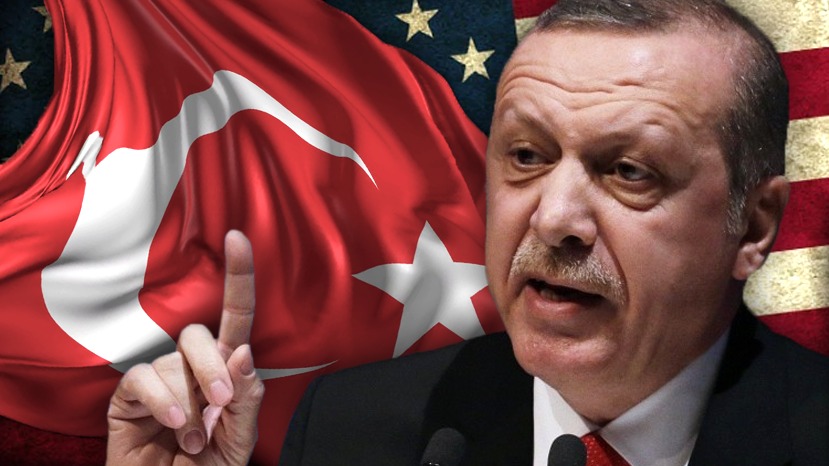Since the US-backed coup attempt on July 15, 2016, the Justice and Development Party (AKP) government has shifted its focus towards Eastern countries.
In this period, cooperation in energy, economic, political, and even military fields has been developed with countries in the region, primarily Russia and Iran.
However, the AKP government has failed to develop an economic model alternative US-centered economy.
In short, the reorientation in the superstructure did not reflect in the infrastructure. As a result, despite strong conflicts, relations with the US has been maintained on a strategic level.
The ongoing relations with the US/NATO were politically covered under the argument of balancing the East with the West.
In this foreign policy line called the “balance policy”, the AKP has pushed the limits both with the US and with Russia and Iran from time to time.
However, in all these relations, the AKP adopted policies that paid attention to the fundamental sensitivities of the partners.
Most recently, the approval to Sweden’s NATO membership should be considered as a result of this political line.
Having supported NATO’s expansion, the AKP continues on its path without a rupture from the US, on which it is still economically dependent.
In this decision, the AKP government considered that approving Sweden’s NATO membership would not be a primary issue in Türkiye’s relations with Russia.
Even Türkiye’s ongoing relations with Ukraine have not fundamentally shaken Ankara-Moscow relations.
From the course of the process and the type of its relationship with Türkiye, we can conclude that Russia’s primary expectation from Türkiye not adhering to the sanctions of the West on Russia. The secondary significant point is Ankara to continue to fulfil the Montreux Convention and prevent US/NATO fleets from entering the Black Sea -which is of critical importance for Russia.
The Turkish government takes this fact into account in drawing the boundaries of its relations with Russia, as well as in negotiating policies towards Russia with the West.
In domestic politics, the government presenting this balance policy to the public as an independent foreign policy in line with Türkiye’s national interests.
However, the escalating conflict between the West and the East raises the question that how long the AKP can sustain this policy.
The war that the West is conducting through proxies in Ukraine could turn into a direct conflict between the West and Russia at any moment.
After the defeat in Ukraine, Western sources insistently take steps to prepare the European people for a war with Russia.
Steps such as enlisting foreigners in the German military and discussions on general mobilization in the UK are part of this.
In such a situation, it is uncertain how the AKP, unwilling to abandon NATO membership, will find a stable ground for relations with Russia.
Similarly, after military operations by Hamas in territories in Israel’s control on October 7th, a new situation has emerged in the West Asia.
Israel’s response, bordering on genocide, has caused the spark in Gaza to spread to Lebanon, Yemen, Syria and Iraq.
Reports of attacks on Western targets from the Red Sea to the depths of Syria have become commonplace.
Most recently, US soldiers targeted by Iraqi resistance groups on the Syria-Jordan border have raised the possibility of a direct conflict between the US and Iran, not through proxies.
It seems likely that the hawks in the US will increase the intensity of attacks on Iran without waiting for the upcoming elections that could potentially bring Trump back to power.
We are at a point where thresholds are being crossed one by one on the path from proxy wars to direct wars between states.
It is becoming increasingly clear that the AKP government’s “balance policy” is not well-suited to the new circumstances we’re heading to.
The questions here is whether the AKP is capable of abandoning its “balance policy” and decisively choosing a side in this process where the conflict between the West and the East is rapidly evolving towards war.

















Leave a Reply